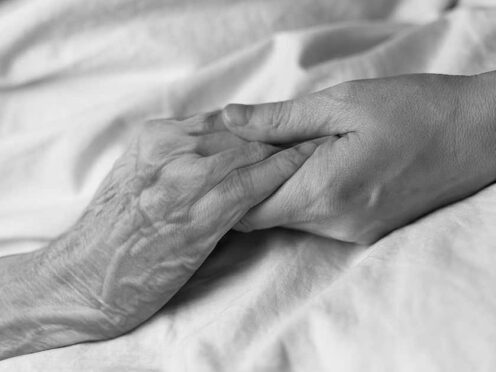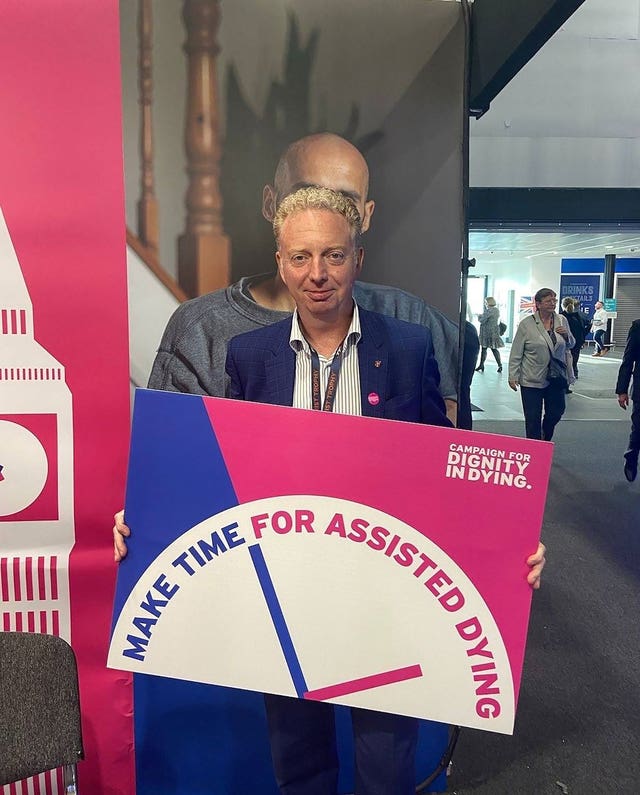
Safeguarding provisions in a potential new assisted dying law on the Isle of Man can be strengthened through further debate this month, the doctor behind the Bill has said.
Campaigners for change have previously suggested the island could be on track to be the first jurisdiction among the UK, Ireland and the Crown Dependencies of Jersey and the Isle of Man to legislate for assisted dying.
But Dr Alex Allinson, who proposed the Assisted Dying Bill, has insisted it is “not a race” and is about getting the law right on a controversial issue.

Supporters of the Bill were gathering outside Tynwald, the island’s parliament, on Tuesday ahead of Members of the House of Keys (MHKs) beginning their scrutiny of each of its 14 clauses.
Care Not Killing, which opposes the prospective legislation, said there are “serious questions that this Bill has yet to answer” as the groups reiterated fears around people feeling pressure to end their lives prematurely should the law change.
The Bill passed a second reading vote in October and has since undergone scrutiny by a five-member committee who published conclusions around eligibility.
Their report, accepted by the island’s parliament last month, suggested a number of potential changes to the initial wording of the Bill.
These included that a person seeking an assisted death could have to be resident on the island for five years instead of one, and that the life expectancy criteria could be extended from six months to a year, noting “the view that more people are living with terminal illness for longer”.
It also suggested a person’s cause of death should be recorded as “assisted dying” on a death certificate, with the underlying terminal illness recorded as a secondary factor.
Ahead of Tuesday’s further debate, Dr Allinson, MHK for Ramsey, said: “October’s historic parliamentary vote demonstrated the willingness for all Members of the House of Keys to listen to the people of the Isle of Man and move forward with this important and publicly backed Bill.
“For many years islanders have called for reform on this crucial issue and I have heard countless stories from those who have been cruelly affected by the current law.
“The strict safeguards in the Bill presents a real opportunity for Tynwald to grant the compassion, choice and protection that dying people and their families have been requesting for far too long.
“I look forward to examining the Bill further with all Members of the House, and further strengthening the safeguarding provisions, during this clauses stage.
“I urge my colleagues to continue to give this Bill their support and grasp this historic opportunity to improve the options and fully respect the dignity for people dying in the Isle of Man.”
The clauses stage is expected to run across a number of days.
Dr Gordon Macdonald, of Care Not Killing, said he and fellow campaigners “will be carefully watching this next stage in slow legislative process” as he claimed there is “growing opposition to this proposal by members in the House of Keys”.
He said: “This is because the more elected representatives hear about what is happening in the handful of places that have introduced assisted suicide or euthanasia the more they recognise the dangers.
“They see how changing the law to allow the state to prescribe and administer death drugs to the terminally ill, elderly, and disabled people will put pressure on them to end their lives prematurely.”
Later this month the States Assembly in Jersey will debate assisted dying proposals, with a vote then expected on whether to proceed with drawing up legislation.

Enjoy the convenience of having The Sunday Post delivered as a digital ePaper straight to your smartphone, tablet or computer.
Subscribe for only £5.49 a month and enjoy all the benefits of the printed paper as a digital replica.
Subscribe